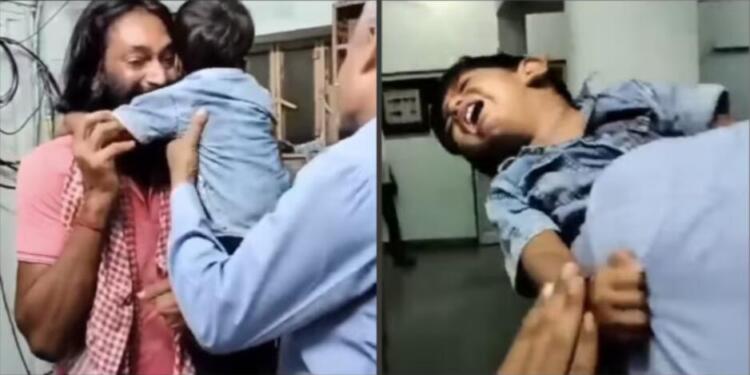In the heart-wrenching tale of Prithvi, an 11-month-old child abducted last year, from Jaipur and 14 months later rescued from Uttar Pradesh, we see a powerful reminder of the profound connection between love and a child’s emotional well-being. Despite being freed from the clutches of his abductor, Prithvi’s reaction spoke volumes about the language of love that transcends even the most dire circumstances.
When Jaipur Police rescued Prithvi, they were met with an unexpected scene: the child clung desperately to his kidnapper, Tanuj Chahar, and cried uncontrollably at the thought of leaving him. For 14 months, Prithvi had been in the care of Chahar, a head constable turned kidnapper, and this extended period forged an emotional bond between the child and his captor. The viral video of Prithvi’s distress highlights a poignant truth—children understand and respond to the language of love and comfort, even in unconventional situations.
This scenario parallels the emotional depth portrayed in the film Highway, starring Alia Bhatt. In the movie, Bhatt’s character, a young woman abducted by a group of bandits, experiences a transformative journey of self-discovery and emotional healing. Through the love and care offered by her captors, she begins to find a sense of security and emotional solace, underscoring the vital role of love and compassion in human development.
Children like Prithvi and the characters in Highway illustrate a universal truth: love is a fundamental need that shapes their emotional responses and growth. Prithvi’s clinging to his kidnapper reflects the love and affection he had grown accustomed to, even amidst a painful situation. It’s a powerful reminder that, ultimately, it is love—whether from a parent or a caregiver—that fosters true happiness and security in a child’s life.
In the end, these stories illuminate the profound impact of love on a child’s emotional world, showing that even in distressing circumstances, the language of love is one that every child deeply understands and cherishes.




















